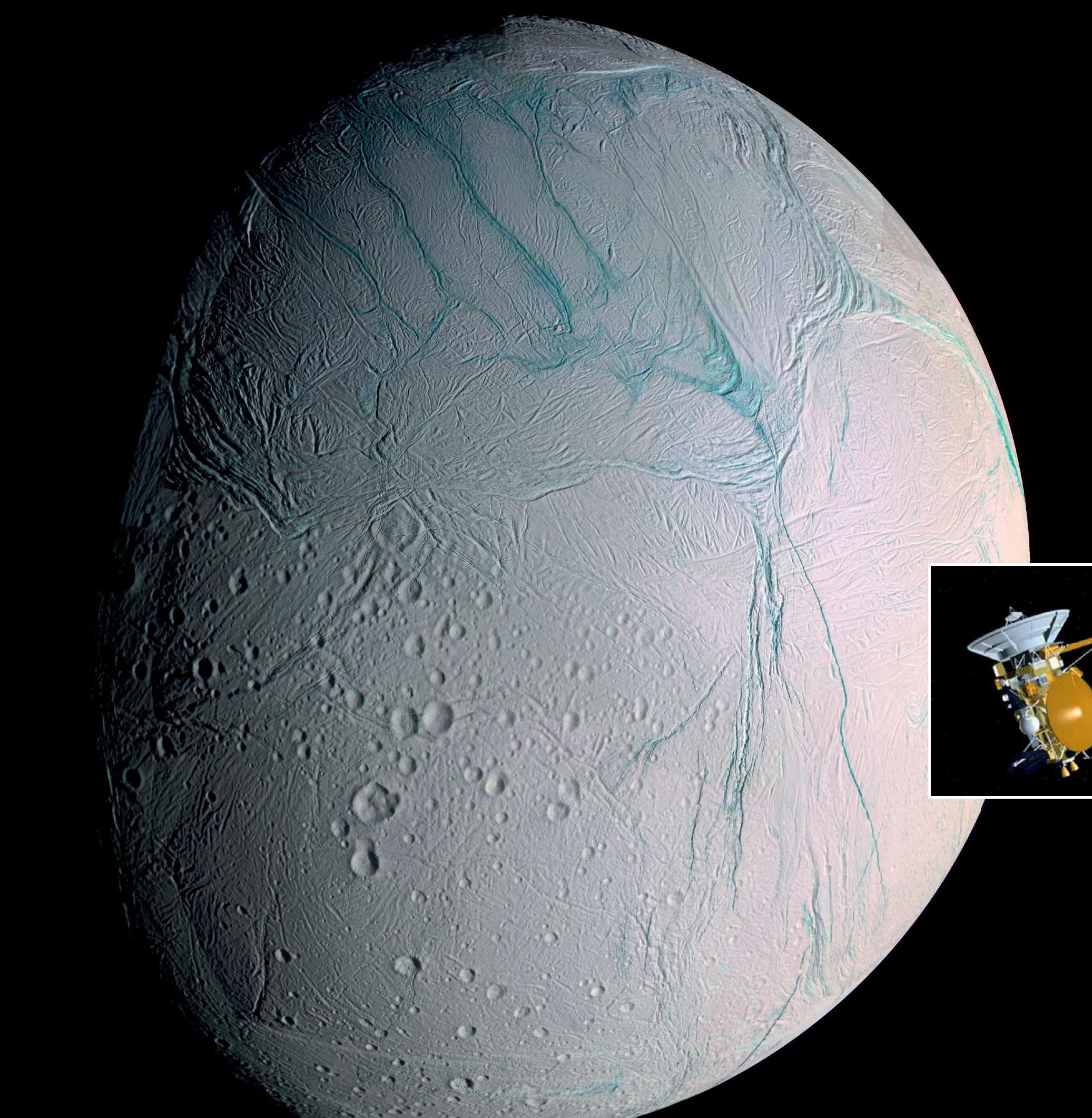
Enceladus imaged by Cassini on 14 July 2005. Note the contrast between the cratered surface near the north pole and the smooth ice covering the south pole
NASA/JPL/USGS
The terms in bold link to topics in the AQA, Edexcel, OCR, WJEC and CCEA A-level specifications, as well as the IB, Pre-U and Highers/Advanced Highers exam specifications.
By analysing its infrared radiation using Wien’s law, the Cassini space mission has mapped the surface temperature of Enceladus, one of the most intriguing objects in the Solar System. Erupting geysers keep parts of the surface crater-free, and material ejected faster than the escape velocity moves through the moon’s gravitational field to join Saturn’s rings.
Your organisation does not have access to this article.
Sign up today to give your students the edge they need to achieve their best grades with subject expertise
Subscribe




